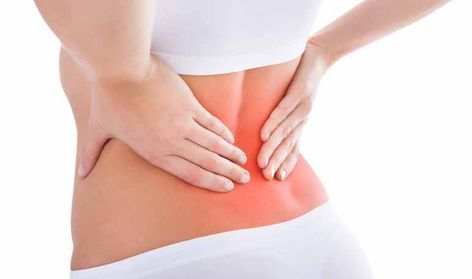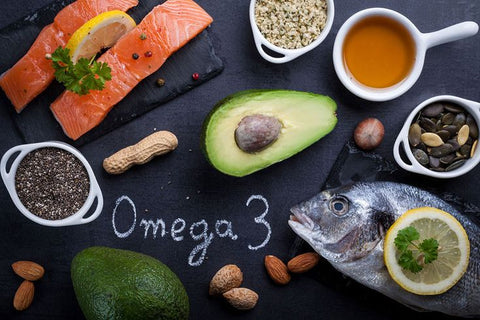How much water should I drink per day? It's a simple question that doesn't have an easy answer.
Different studies have indicated different recommendations over the years, but your individual water needs depend on many factors, including your health, how active you are, and where you live.
There is no one-size-fits-all formula, but knowing more about your body's fluid needs will help you calculate how much water you should drink each day.
What are the health benefits of drinking water?
Water is the main chemical component of the body, making up approximately 50% to 70% of body weight. Your body depends on water to survive.
Every cell, tissue and organ in the body needs water to function properly and water is needed for:
Eliminate waste through urine, perspiration and bowel movements
Maintain the temperature at normal levels
Lubricate and cushion the joints
-
Protect sensitive tissues
Lack of water can lead to dehydration, a condition that occurs when there is not enough water in the body to carry out normal functions. Even mild dehydration can drain your energy and make you feel tired.
But pouring yourself a glass or drinking from a fountain are not the only ways to provide water to your body, because it also comes through food.

How much water do we need every day?
There is no specific figure. Water needs depend on many factors, especially the climate, humidity and physical activity . When there is high humidity and high temperatures, water needs increase, as does when exercising.
In 2010, the European Food Safety Authority established that the adequate amounts for the European population, considering moderate temperatures and physical activity, are 2 litres for women (2.3 for pregnant women and 3 for breastfeeding women) and 2.5 litres for men. However, this amount includes the amount provided by food, which is estimated to be between 20% and 30% on average.
The type of diet also has an impact. Thus, a diet rich in fruits and vegetables can provide up to one litre of water, requiring a liquid intake of only one more (approximately).
Again, the solution to this question is the simplest and most obvious: we must react to the sensation of thirst. Drink water with meals and between meals when thirst appears and have a diet rich in vegetables and fruits.

From here, each person has his or her own needs . When a healthy person loses 1% of his or her water, the thirst mechanism is activated and there are no symptoms of dehydration. But when the water loss is 2%, if the high sensation of thirst is not calmed, headaches, fatigue, decreased intellectual performance, lack of concentration, and even circulatory problems may appear. When the body regains its balance with the amount it needs, the symptoms disappear.
You may also need to adjust your total fluid intake based on a number of factors:
Exercise . If you do any activity that causes you to sweat, you need to drink extra water to cover the fluid loss. It is important to drink water before, during, and after a workout.
The environment . Hot or humid weather can make you sweat and require you to drink more fluids. Dehydration can also occur at high altitudes.
General health . Your body loses fluids when you have a fever, vomiting, or diarrhea. Drink extra water or follow a doctor's recommendation to drink oral rehydration solutions. Other conditions that may require increased fluid intake include bladder infections and urinary tract stones.
Pregnancy and breastfeeding . If you are pregnant or breastfeeding, you may need extra fluids to stay hydrated.

Is water the only option to stay hydrated?
The general recommendation is to drink tap water, but sometimes the taste can be a barrier… in this case, some filters can help improve its taste; drinking natural tap water or bottled water –taking into account the environmental cost of plastics– is the first option for hydration.
If you don't like plain water, you can flavour it with citrus slices, cinnamon, herbs, cucumber or small amounts of juice. Drinking infusions, tea and coffee are good options, but it is better not to add sugar.
Also, drinks such as milk, juice, and tea are almost entirely water. Even caffeinated beverages, such as coffee and soda, contribute to your daily water intake. But don't get carried away with sugar-sweetened beverages… sodas, energy drinks, sports drinks, and other sweet drinks often contain a lot of sugar, which can provide more calories than you need.

Foods that have more water
In addition to the water we ingest, we must also add the water we drink without realizing it, such as from fruits and vegetables.
In fact, although some require a lot of water for their production, fruits and vegetables are made of water. According to data provided by the Food and Agriculture Organization of the United Nations (FAO), 91% of the composition of fruits is water. And in the case of vegetables, we are talking about up to 95%.
Foods with a lot of water have great benefits for our health and fruits and vegetables top the list because they are mainly made up of water. These are the fruits and vegetables that organizations such as the FAO recommend to help you achieve a healthier diet.
Watermelon
93% of watermelon is water and provides fiber, sugars, antioxidants and vitamins, such as B and C. One of the great health benefits of this fruit, being low in calories, is that it helps prevent diseases and heart problems, reduces cholesterol and keeps our heart healthy.
The pineapple
Pineapple is an excellent natural diuretic that helps us purify our body, providing a good dose of liquid, fiber and antioxidants. It also contains the enzyme bromelain, which is only found in this type of fruit and is used as an anti-inflammatory. In addition, pineapple strengthens the immune system.

The melon
Another of the fruits typical of summer that stands out among foods with a lot of water. That is why it is a great option to refresh ourselves, quench our thirst and also to ingest vitamins and fiber that favor our health and well-being.
Cucumber, the king of water-rich foods
In addition to being the vegetable par excellence for cosmetic treatments, because it helps eliminate dark circles and bags, it also helps drain our body. All due to its water content and its characteristic freshness. 96% of its content is water.
Asparagus
Asparagus is not just a food with a lot of water; it has diuretic properties that help eliminate toxins. In addition, it has a good amount of water and fiber and helps us stay nourished, hydrated and healthy for very few calories.
The tomato
In addition to its water content, it is an alternative full of antioxidants, fiber and vitamins that is very beneficial for our body and very versatile in the kitchen. Tomatoes help lower cholesterol levels and reduce the possibility of suffering from high blood pressure.
Oranges
It is known for being rich in Vitamin C but it has many more beneficial properties for health. The orange contains a large amount of carbohydrates, fructose and minerals such as calcium, phosphorus, magnesium and potassium. Of every 100 grams of orange, 86.34 are water.
Lettuce
Lettuce is another food rich in water. According to FEN experts, in addition to water, it contains a certain amount of protein, folate, vitamin C and flavonoids. It also contains –although in smaller quantities– phosphorus, potassium, iron and calcium.
Celery
In addition to being composed of 95% water, it contains vitamin K, potassium and vitamin B9 (also called folic acid), which is essential for cell production, as stated in this study from Harvard University.

How do I know if I'm drinking enough?
Your fluid intake is probably adequate if:
You rarely feel thirsty.
-
Urine is colorless or light yellow.
To prevent dehydration and ensure that your body is getting the fluids it needs, make water your drink of choice. It's a good idea to drink a glass of water:
With every meal and between meals
Before, during and after exercise
-
If you are thirsty
Drinking too much water is usually not a problem for healthy, well-nourished adults. Sometimes athletes drink too much water in an attempt to avoid dehydration during prolonged or intense physical exercise. When you drink too much water, your kidneys are unable to get rid of the excess water. The sodium content in your blood becomes diluted. This is known as hyponatremia.

https://www.academianutricionydietetica.org/que-comer/cuanta-agua-beber-dia/
https://www.mayoclinic.org/es/healthy-lifestyle/nutrition-and-healthy-eating/in-depth/water/art-20044256
https://mejorconsalud.as.com/alimentos-ricos-en-agua/
https://www.fundacionaquae.org/wiki/7-alimentos-contienen-mucha-agua/




Comments (0)
There are no comments for this article. Be the first one to leave a message!